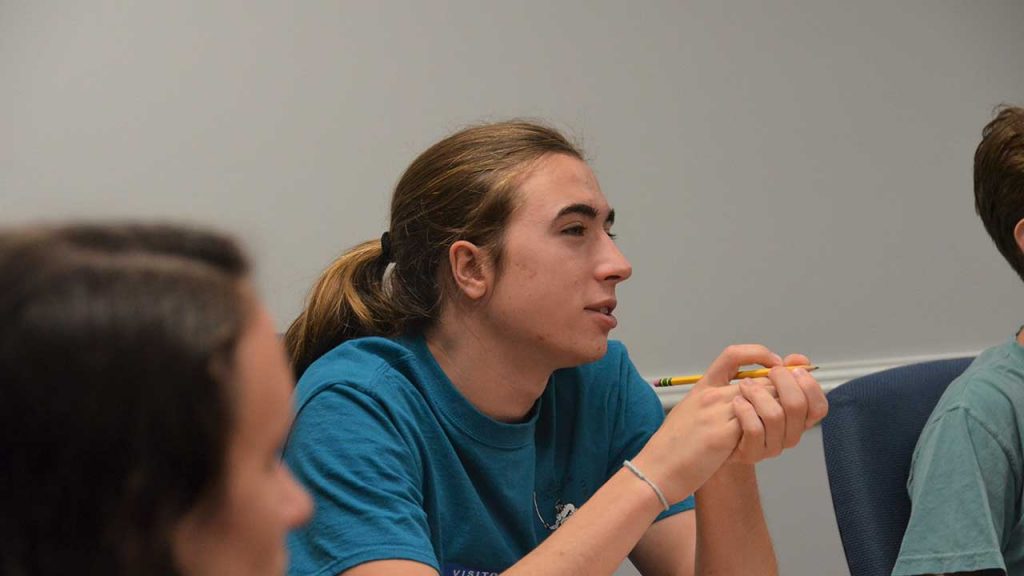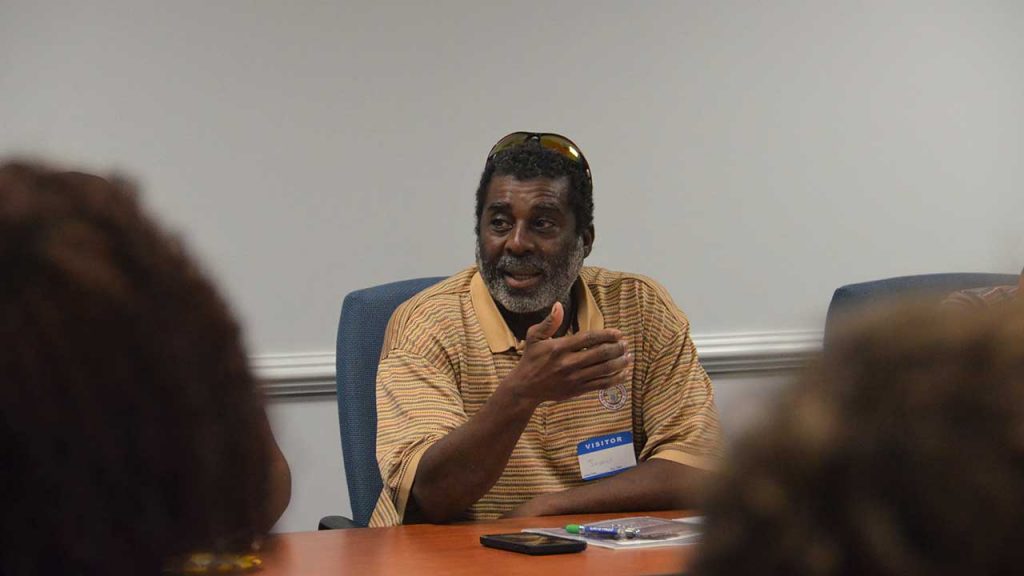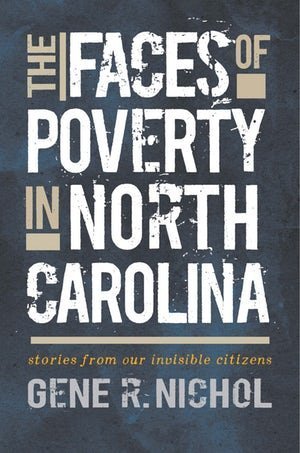Tips for Talking About Poverty From People Who’ve Lived It
Recently, a dozen college interns from across the region gathered at Crisis Assistance Ministry as part of their orientation to a summer of service in Charlotte. The interns will work in different roles at various organizations throughout the city, with one common theme: serving marginalized people.
Leaders from Covenant and Myers Park Presbyterian churches, who will oversee the interns’ experiences, wanted to ensure the young people were grounded in an understanding of the issues surrounding poverty before heading into the field. So, they turned to Crisis Assistance Ministry’s Civic Engagement Program.
The students were assigned a chapter from Gene Nichol’s new book, “The Faces of Poverty in North Carolina: Stories from Our Invisible Citizens”, to read and were asked to create questions they’d like to ask people living in situations like the ones described in the book.
When the interns met with four community advocates to discuss the reality of life on the bottom rung of Charlotte’s economic ladder, the conversation was free-ranging and honest as advocates shared their personal experiences.

Imagine yourself in the other person’s skin
One question posed by an intern sparked heartfelt responses: “What advice do you have for someone just starting out as an advocate in the community?” The answers were worded differently, but the message was the same: imagine yourself in the other person’s skin.
Slow down. Make eye contact. Smile. Suspend judgment and see the humanity within each person. Understand that no one wants to experience poverty.
Everyone wants the dignity of providing for their own needs. No one wants to rely on public assistance or private charity. No one chooses to be mentally ill, or physically disabled, or addicted to drugs. At the core, we are all the same – the suit-wearing bankers striding down the street and the homeless people sleeping in the doorways they pass.
In a first-person account published a few years ago, “Not Poverty, Acute Financial Distress”, author James Abro argued that we should not talk about “poverty,” due to the dehumanizing stigma associated with the word. Instead, he suggests the phrase “acute financial distress”. When someone is in distress, he explained, we want to help them.
Abro also pointed out that poverty is typically seen as a permanent condition whereas, in reality, people slip in and out of poverty over their lifetimes. The factors that lead to acute financial distress are varied – a car accident, job loss, divorce, health condition – the list goes on. Each person’s story is unique and complex. But, said Abro, “People prefer the stereotypes to the real stories – it makes it easier to maintain bad policies.”
Poverty isn’t just about money
One of the biggest takeaways for those in attendance was that poverty is not just about money. It’s a constant barrage of stress – uncertainty, isolation, shame, and impossible choices. For a glimpse at how tough those decisions can be, try your hand at an interactive quiz, “Poverty Comes with Few Good Choices”. The quiz appeared in the Winter 2019 edition of the Bush Institute’s journal, The Catalyst, which focuses on issues surrounding poverty.
That edition also includes a conversation with Wes Moore, who grew up “on the precipice of poverty” and now leads one of the nation’s largest anti-poverty groups, Robin Hood. “Too often,” he says, “When we talk about poverty, we talk about the people who are living in that terrible reality as if it’s a choice, or as if they’re lazy.”
Recognizing that poverty is the result of complicated and interrelated factors, and not a choice, is key. However, it’s equally important to see people suffering from acute financial distress as neither helpless nor hopeless. Surviving under such tremendous duress tends to forge strength and wisdom in people. They are survivors, and their voices need to be heard. They are the experts in the subject of poverty and should be at the center of every conversation about it.
See me

As James (above) told the group, “Don’t feel sorry for me. Just see me, really see me. And listen to me.”

